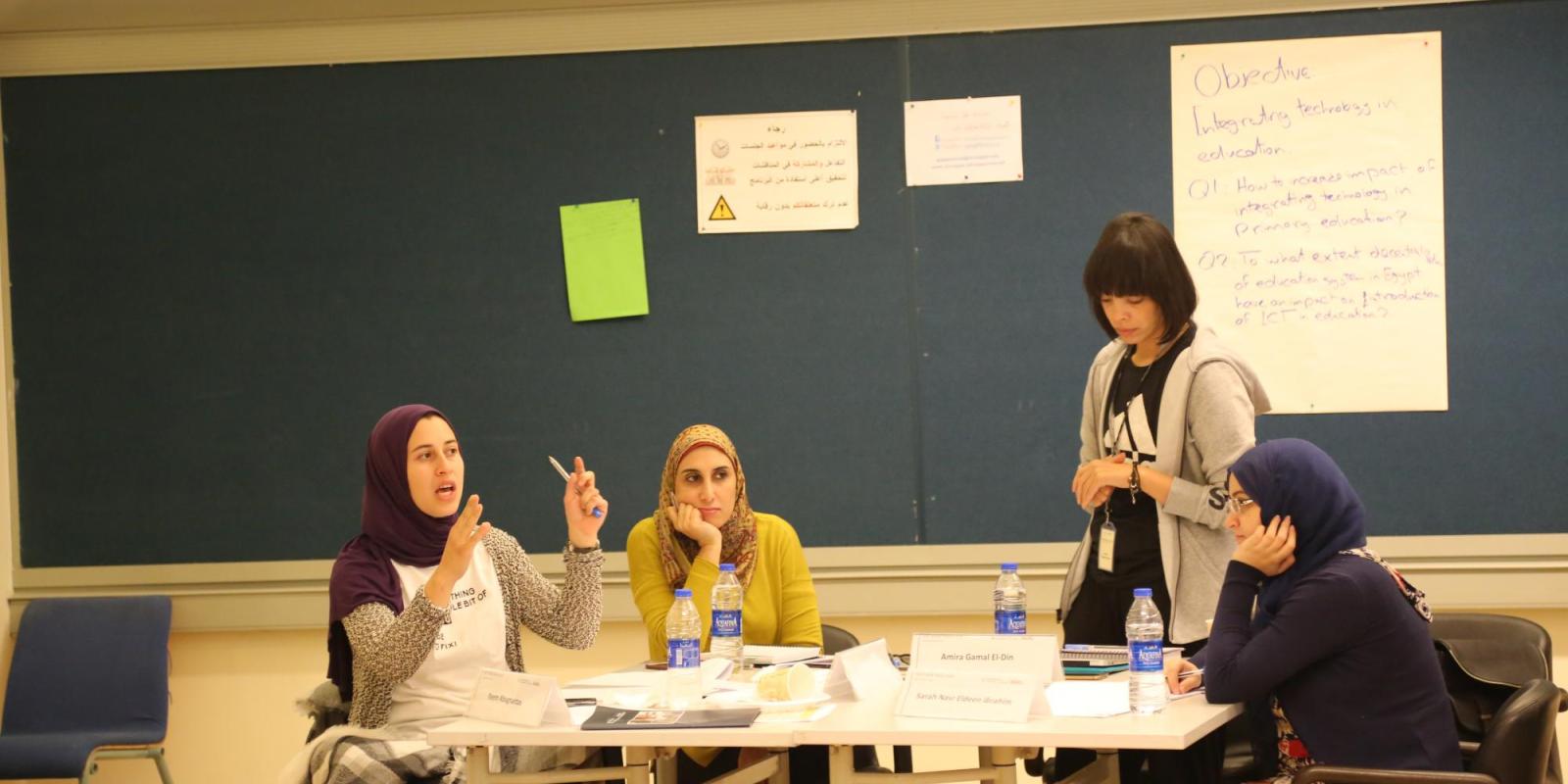
Making a Real Impact: Students Put Public Policy into Action
What’s the point of learning about policymaking if you never get to see it in practice?
This is a question AUC’s School of Global Affairs and Public Policy (GAPP) is hoping to address through a new program launched in the fall. The Public Policy Hub is an initiative aiming to close the gap between academic research and public policymaking. Through the hub, graduate students and alumni research five different problems facing Egypt.
The hub has several goals, explained Laila El Baradei, GAPP associate dean of graduate studies and research, professor of public policy and the project’s principal investigator. It addresses an urgent need in Egypt for well-researched policies to tackle pressing issues in the country, creates more open-policy discussions in government and turns students into trained policy developers and advocates.
"The project is unique,” said El-Baradei. In addition to establishing a strong link between governmental organizations and AUC, GAPP is “going the extra step to make sure the policy findings and recommendations will have a higher potential of reaching those concerned by providing not only the rigorous policy research, but also a supplemental bilingual policy brief and a creative communication tool to make sure the message reaches the targeted audience,” said El Baradei
This round, participants tackled topics that included the inclusion of women in the labor market, corruption in local administration and the integration of technology in education. The groups then come up with policy proposals that will be sent to governmental ministries and organizations for their consideration.
“The whole idea of the hub is very interesting for two main reasons,” said Rawda Saeed Ali (MPP ’17), who earned her master’s in public policy from AUC and participated in the first round. “The first is that it will enhance the impact of research -- especially evidence-based research-- on policymaking or public policy in general,” said “[Secondly], it will serve as a platform that will allow for knowledge-sharing involvement and contribution to public policymaking in Egypt.”
The project began by gathering input about priority issues from several government ministries and organizations. After that, participants who had been interviewed and were accepted went through a five-day training program that covered topics including big data analysis tools, advocacy and effective public policy communication. Next, the participants were split into teams of five and set out to interview stakeholders in their respective topics.
At this stage in the process, the teams are finishing up their policy proposals, and many of them say they’re planning on seeing them through to the ministries’ hands. Ali is preparing to submit the final version of her team’s proposal on curbing corruption in local government.
“People view corruption as only related to money, bribes and financial issues. However, I think corruption is broader than that,” Ali said of what she’s learned so far. “Corruption is partly related to negligence in providing [public] services to people. It’s also cultural. It’s embedded in the culture to the extent that it became a structural phenomenon.”
Ahmed Elsherbini Ibrahim, who is enrolled in the Master of Public Administration program at GAPP, said that aside from the obvious skills he’s gained from the program, he’s also learned effective communication methods.
“You cannot just tell people ‘No, you are wrong,’” he explained. “You have to understand why they chose that way in the first place -- and why it didn’t work.”
Ibrahim’s group was responsible for a proposal regarding employment for people with disabilities. His group spoke with people who have disabilities, officials in the National Council for People with Disabilities -- which was created shortly after the 2011 revolution -- and employers. “Most of them are happy with what they already achieved, but I feel that we still have a lot to do,” he said. “It takes a lot of time to assemble the big puzzle.”
